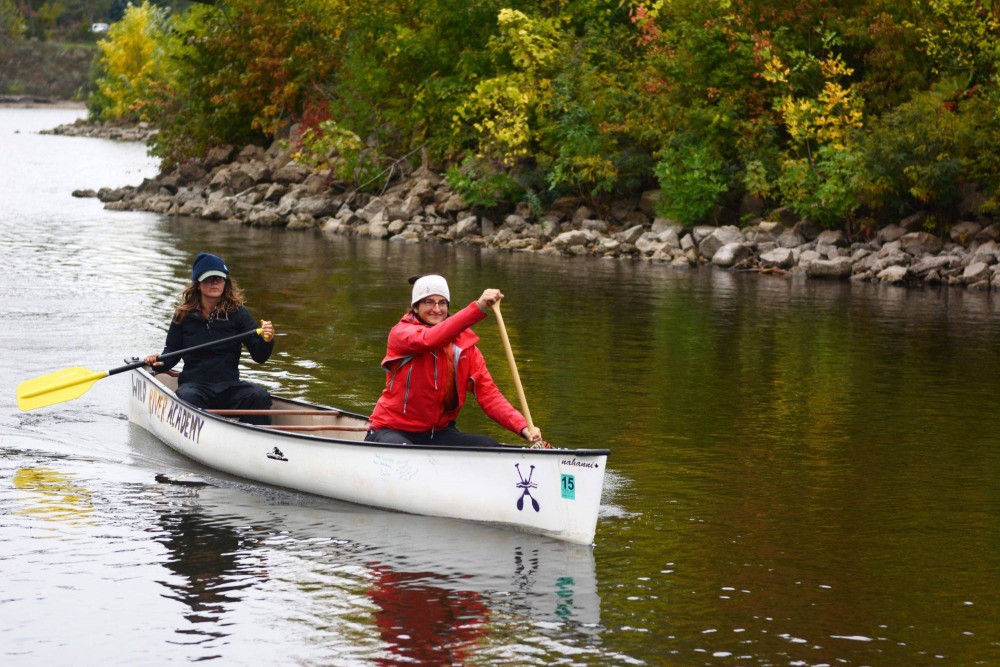In a journey across the Mississippi River, nearly a dozen canoeists floated into Minneapolis’ Boom Island Park for a quick lunch break last Friday afternoon.
Despite dreary weather and exhaustion, the group, which has three recent University of Minnesota graduates, celebrated returning to their hometown, albeit briefly.
The group, called Paddle Forward, soon continued their canoe trip, which set to end in New Orleans by Thanksgiving. Along the way, they’re making a documentary about what they find.
Erika Gotcher, a University alumna, said the group doesn’t have a specific agenda for its documentary, but they plan to talk with people living along the river to see how the Mississippi impacts their lives.
“We want to talk to the communities and see what they are experiencing, because they’re the ones who are affected by the river,” she said.
Every canoeist in Paddle Forward has a different personal goal for the trip.
Elizabeth Just, a 2012 environmental science and policy management graduate, said she wants to find out if people understand how their everyday choices impact the river’s environmental health.
She said Paddle Forward members plan to compare northern parts of the Mississippi River with its southern half, adding that group members felt the water was cleaner closer to the river’s headwaters.
“We felt safe at the very beginning even filtering water or putting iodine in water and drinking it,” she said. “Now we probably won’t do that anymore, just because we’ve already passed so many paper mills, and a nuclear plant, and dams.”
Just south of the Twin Cities, the Minnesota River empties into the Mississippi and the pollution increases, said Chris Lenhart, research assistant professor in the Department of Bioproducts and Biosystems Engineering.
He said the Minnesota River carries large amounts of sediment and pollutants from agricultural runoff that are later fed into the Mississippi.
Joe Magner, another bioproducts and biosystems engineering professor, said pollution is one of the Mississippi’s biggest issues.
“Probably our biggest issue that we’re focusing on today is the amount of pollutants that we send down to Louisiana and in particular the Gulf of Mexico,” he said.
But Paddle Forward members said they didn’t go on the trip just to find evidence of pollution.
Lee Vue, a 2013 political science graduate, said she wants to simply talk to those living along the river.
“We’re just paddling the Mississippi River, interacting with communities along the river as well as starting conversations about how people interact with the river and how they want the river to look in the future,” she said.
The group planned to depart from the Mississippi’s headwaters near Lake Itasca, Vue said, but the water was too low, forcing them to leave from Lake Bemidji instead.
Gotcher said the group paddles about 30 miles each day and camps along the way.
Other Paddle Forward members hope to look at the Mississippi with fresh eyes after their trip, she said.
“Going to school at the U, we cross over it on the Washington Avenue Bridge — I crossed over it every single day,” Gotcher said. “But now I have to slow down. … It gives you a really different perspective.”


